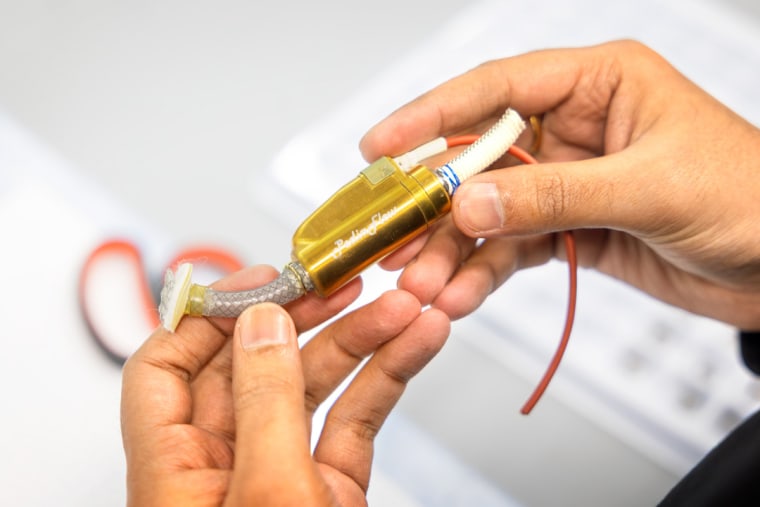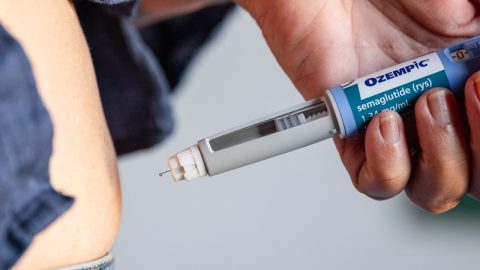For James Antaki, a biomedical engineering professor at Cornell University, the $6.7 million government grant meant babies would be saved. Awarded by the Department of Defense on March 30, it would allow his team at Cornell to ramp up production and testing of PediaFlow, a device that boosts blood flow in infants with heart defects.
A week later, that all changed.
The Defense Department sent Antaki a stop-work order on April 8 informing him that his team wouldn’t get the money, intended to be distributed over four years. Three decades of research is now at risk, and Antaki said he has no idea why the government cut off funding.
“I feel that it’s my calling in life to complete this project,” he said Friday, in his first news interview since losing funding. “Once a week, I go through this mental process of, ‘Is it time to give up?’ But it is not my prerogative to give up.”
Neither the Defense Department nor the White House press office responded to requests for comment.
Antaki is one of hundreds, if not thousands, of academics nationwide who’ve lost funding in a variety of fields since President Donald Trump came to office, due to a mix of new executive orders limiting what government money can support and the sweeping grant cancellations ordered by Elon Musk’s Department of Government Efficiency.
One in 100 babies in the U.S. are born with heart defects, and about a quarter of them need surgery or other procedures in their first year to survive, according to the Centers for Disease Control and Prevention. Worldwide, it’s estimated that 240,000 babies die within their first 28 days due to congenital birth defects.
An infant’s heart is about the size of a large walnut. When a baby is born with a hole between the chambers of the heart, it can be a life-threatening condition. Antaki’s creation is a AA battery-sized device that uses a rotating propeller on magnets to increase blood flow, helping them to survive surgery or live at home with their family until a donor heart is available, if needed.

The new round of funding Antaki expected would have supported further testing of the prototype, including placement in an animal to ensure it won’t harm humans, and completion of the mountain of paperwork needed to move through the Food and Drug Administration’s regulatory process.
The device has received several grants over the years from the National Institutes of Health and the Department of Defense without issue, Antaki said.
Antaki began work on the technology in 2003. He was already developing a similar technology for adults at the University of Pittsburgh when the National Institutes of Health issued a call for proposals on a pediatric heart assist system.
He had already been trying, without success, to interest private companies in a pediatric device. They may have declined, he speculates, because the market is smaller for children’s medical devices than for adult ones.
After Antaki arrived at Cornell in 2018, he secured research funding from the Defense Department to keep the project moving forward. He submitted a 300-page proposal last June for the next cash infusion he needed, and the Defense Department notified his team in March that it was approved, before reversing course in April, he said.
A copy of the stop-work order, reviewed by NBC News, does not specify a reason why the government canceled the grant beyond that it was “at the direction of the Administration.”
Dr. Evan Zahn, a pediatric interventional cardiologist at Cedars-Sinai Medical Center in Los Angeles, who is not involved with PediaFlow, said cutting funding for Antaki’s research is a step backward for children’s health care because there are few commercially available solutions for babies with heart defects.
“Technology specifically designed for our children, particularly babies across the board, is desperately needed, so losing funding for something like that is a real loss,” Zahn said.
If funding isn’t restored within 90 days, Antaki said, he and his team will need to begin laying off lab staff and Ph.D. students will have to change their research focus.
In the grand scheme of what the government funds, he said, “it’s a small amount of money that could do so much good for so many people, and it’s just the right thing to do. It just it kind of speaks for itself.”








Recent Comments